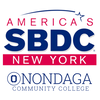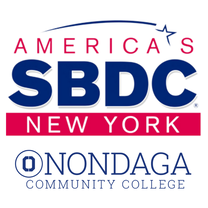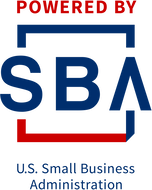 As advisors and community economic-development specialists, we are often approached by individuals who are looking to start a business or expand an existing one with one common question: “Are there any grants available for my business”? There is a simple and a complex answer to this question. The simple answer is yes there are some grants available, and the complex answer is that the grants offered may not apply to your business. Grants are difficult to obtain and can have a variety of conditions attached. Many are not available to startup businesses. People also have a misconception that funds are available specifically for women and minority owned businesses. Also, the retail industry rarely has any grant opportunities. Grants exist to help businesses that will have impact on the community as a whole. Impact on the community may come in the form of job creation, value added (agriculture benefits), or more revenue brought to the area in general — perhaps through a sector such as tourism. Now saying, “Well I will be creating a job for myself” doesn’t count or saying, “I will be bringing revenue in for my family” doesn’t count. Generally, money used for grants are public tax dollars; the state wants to see how your business, with the assistance of a grant, will impact as many residents as possible. Yes, it is true you can find grant opportunities in some limited circumstances, such as when jobs are created. But you can’t rely on grants as a primary means to start or expand a business. Rather, in limited situations, grants can be pursued to help a business try something new or pursue a specific opportunity. Business owners should keep in mind that grants are very competitive. Grants have deliverables and reporting requirements; they are not free, easy money. Some grants are reimbursable, which means you pay for everything first then submit receipts to be reimbursed. Please, also understand you don’t do a project then apply for the grant. You must apply first, be approved, then do the work (pay for the project), and once the project stipulations are complete, you may receive the money. It’s always advisable to understand exactly what a grant will and will not fund, and confirm whether you are eligible prior to spending time preparing a grant proposal. The best way to do this is to look at what has been funded in the past and reach out directly to the funder. The most common opportunities are through the Regional Economic Development Councils (REDCs). See regionalcouncils.ny.gov for more information. If a business is planning to expand and create jobs, grants can be pursued for up to 20 percent of the startup or expansion costs. It should be noted that these grants are not paid to the awardee until the job creation (as committed in the grant application) is documented. This means you must spend the money first on the project, hire employees, and then get reimbursed. Jobs for family members of the business do not count toward overall job creation. Small businesses in the agriculture sector may be eligible for a variety of grants related to value-added products, investments in conservation and clean-energy initiatives, and a variety of other programs. The Cornell Small Farms program is a great resource and information is available at smallfarms.cornell.edu/resources/funding/grants Adding energy efficiency measures to your business is another way to potentially access grants. The available programs change frequently and information is available at nyserda.ny.gov In general, unless your business includes a unique feature with a public benefit, any additional opportunities for grants will be on a limited and competitive basis. Please remember grants are not just free money for you to pursue your dream. Grants are meant for businesses that will be making a profound impact on the community. Check with your local Small Business Development Center or local economic-development agencies for any opportunities that might be specific to your community or geographic region. Keep in mind that these are rare. article published in the BJNN on March 4, 2019 Lauren Lines is executive director of the Cazenovia Area Community Development Association and Melissa Zomro Davis is an advanced NYS-certified small business advisor at the Small Business Development Center at Onondaga Community College.
0 Comments
Leave a Reply. |
Our Blog
Read articles and advice written by our very own Onondaga SBDC Business Advisors! Topics
All
|
Empowering Entrepreneurship, Inspiring Success in Central New York.
Cayuga l Cortland l Jefferson l Lewis l Madison l Onondaga l Oswego l Seneca
|
Email: [email protected]
|
Phone: 315-498-6070
|
Onondaga Small Business Development Center. Partnership Program with the SBA, administered by the State University of New York. Funded in part through a Cooperative Agreement with the U.S. Small Business Administration. All opinions, conclusions or recommendations expressed are those of the author(s) and do not necessarily reflect the views of the SBA. All SBA funded programs are extended to the public on a nondiscriminatory basis.




